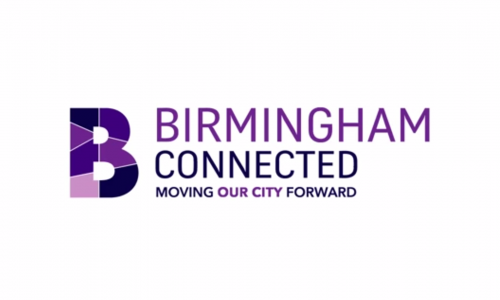
Birmingham businesses could face £20m a year workplace parking tax
A controversial workplace parking tax on Birmingham businesses could raise £20 million a year to improve public transport and help keep cars off the roads, the city council has said.
Firms would pay a levy based on the number of free parking places they provide for staff and the money raised would be used to drive forward £4 billion of public transport improvements envisaged in the council’s Birmingham Connected white paper.
The possibility of congestion charging is set out in general terms in the paper, but a specific proposal to investigate the possibility of raising £20 million a year from workplace parking levies was included in a written report to the council cabinet – which was approved.
Council leader Sir Albert Bore stressed that no decisions have been taken and that various options to raise cash for more metro tram routes and sprint bus services are being considered.
However, at the moment only £700 million of the £4 billion required to implement the 20-year Birmingham Connected plan has been identified.
Sir Albert said he believed the business community realised that firms would have to make a larger financial contribution if necessary improvements in transport infrastructure were to be delivered.
Otherwise Birmingham would forego any improvements from economic growth because city roads would be gridlocked, he warned.
The cabinet report sets out the case for road pricing and demand management: “Businesses across the city will gain significant financial benefit from a massive investment in transport and hence they will have a vested interest in contributing to its delivery.
“We recognise the need to explicitly demonstrate the economic benefits to business and have the honest conversations before implementing any charging mechanisms. It is our intention demonstrate this and make a final decision on how new funding can be raised.
“The responses from the consultation together with the work have refined the direction to be taken in the white paper in setting a bold new direction for the next 20 years that will see funding ramped up and new infrastructure delivered.”
The report proposes investigating options and commiting to a local form of funding generation which will “result in the benefits from BMAP being realised much earlier”.
The document continues: “For example as part of a city-wide strategy on car parking a Work Place Parking Levy (where what is currently free parking at businesses is taxed) could result in over £20m of new investment into our transport system each year; although this is only one of a number of options available.”
Proposals for a workplace parking tax or a £5 congestion charge on motorists driving into Birmingham city centre were first raised eight years ago in the council’s Gridlock or Growth green paper. But the idea was quickly dropped by the city’s Tory-Liberal Democrat coalition following a barrage of opposition from businesses.
Labour, having regained control of the council in 2012, appears to have dusted off many of the Gridlock or Growth proposals under the guise of the Birmingham Mobility Action Plan, or Birmingham Connected as it is now to be branded.
And as was the case in 2006, Birmingham’s businesses community is unimpressed.
Jerry Blackett, chief executive of Greater Birmingham Chamber of Commerce, told the Transport Network website that a workplace parking levy of the type recently introduced by Nottingham Council would be a “blunt instrument” to be avoided. He also reportedly questioned the value of sprint bus services, preferring to extend the Midland Metro tram network instead.
It has also emerged that even if all of the proposals set out in Birmingham Connected were delivered there would not be an overall decrease in the number of cars on the roads. Although the plan is forecast to take 20,000 car journeys off the roads by 2035, that would simply leave city centre roads as congested as they are today.
Cllr Robert Alden, leader of the city council opposition Conservative group, warned that a proposal to remove the A38 tunnels through Birmingham would case “traffic chaos” in the St Chad’s area.
He believed Birmingham could be seen as “anti-car” because congestion charging methods were likely to be introduced before significant improvement to buses, train and tram systems were in place.
The main proposals set out in Birmingham Connected are:
- Complete a £1.2bn integrated public transport network within 20 years which will allow people to travel across the city in high-quality vehicles, feeling safe and secure and at busy times faster than they could by car.
- Deliver three new tram routes and nine sprint bus services.
- Develop a strategy for the long-term future and role of the A38 through the city centre; recognising potentially enormous economic and social benefits which could be realised by removing structures, closing the existing tunnels and redirecting through traffic on to either a substantially upgraded ring road or new, longer tunnels under the city.
- Snow Hill station will receive a £400m upgrade to provide a second world-class gateway to the city after New Street Station re-opens fully in 2015.
- Re-open closed rail routes to Moseley and Kings Heath, Sutton Coldfield and Tamworth.
Similar Articles
Cameron urges West Midlands to be ‘bold’ with devolution vision 4
David Cameron has urged the shadow West Midlands Combined Authority to be “bold” when negotiating
‘Humble’ Brummies must shout out about city’s attractions, chamber chief warns 13
Brummies have been too hard on themselves in the past and have “bought into negative
Your say on next leader of Birmingham City Council 28
Only 78 people will have the opportunity to elect the next leader of Europe's largest metropolitan
Government closing in on West Midlands metro mayor deal, says Osborne 9
George Osborne has revealed he is close to agreeing a devolution deal for the West
West Midlands LEPs experience joy of six for the first time 1
The six West Midlands local enterprise partnerships are demonstrating how they could work together if










